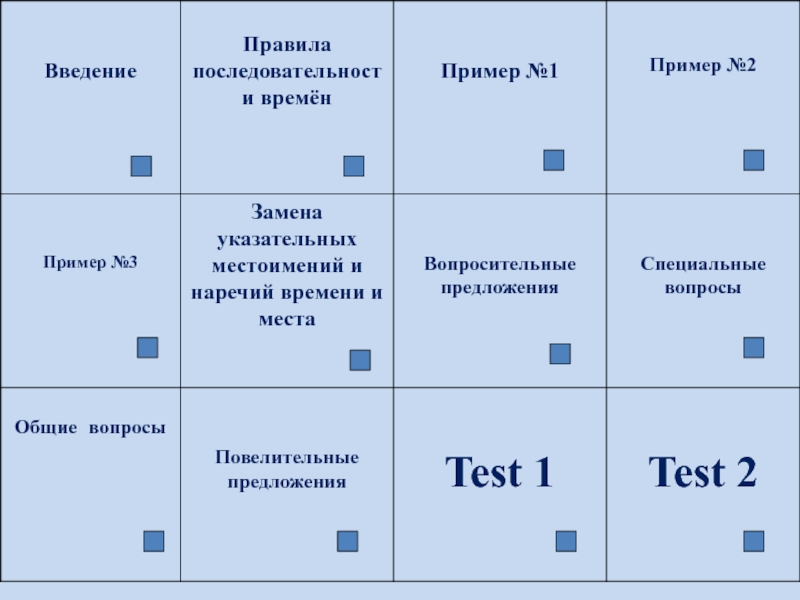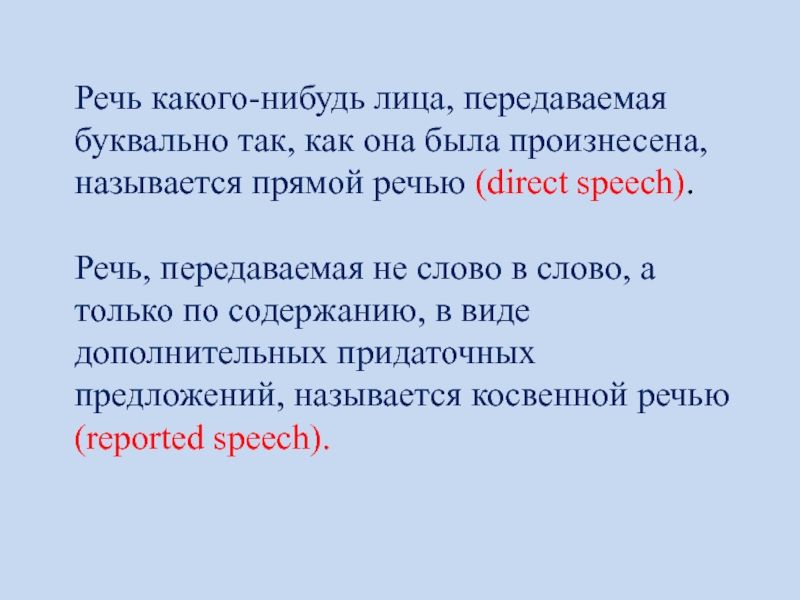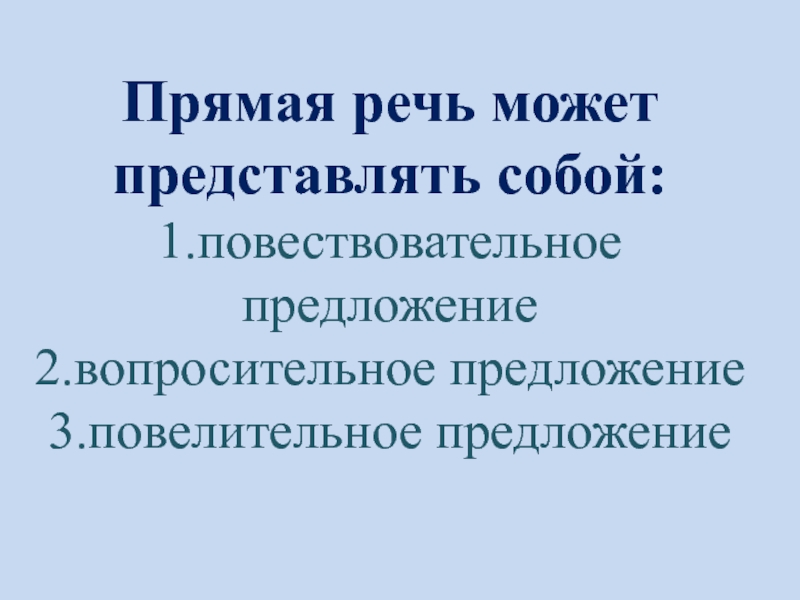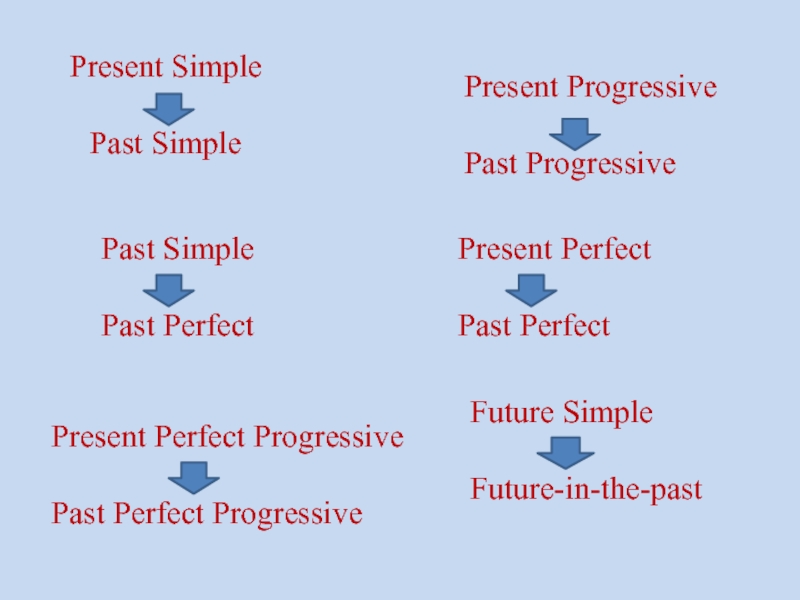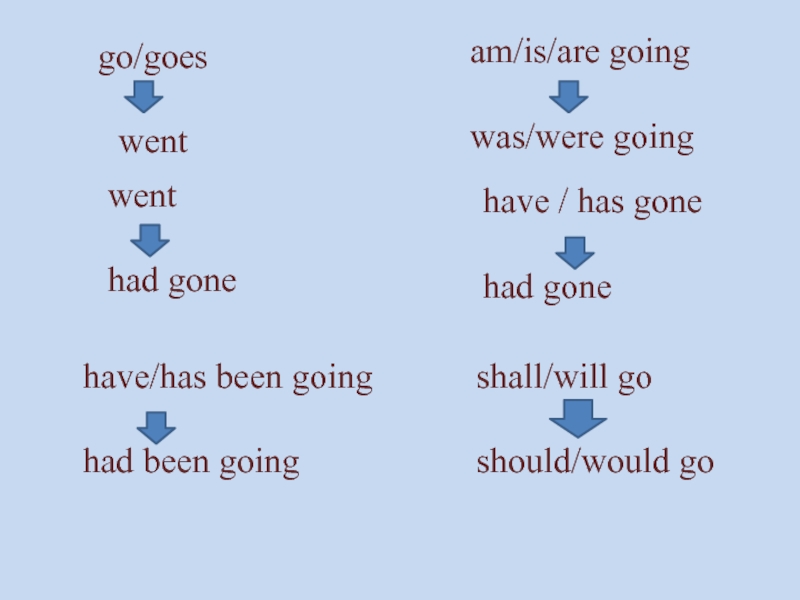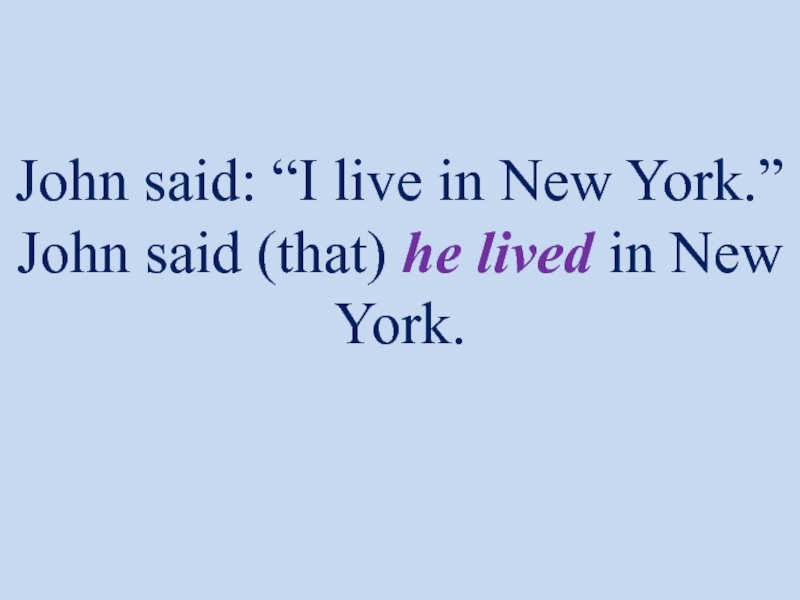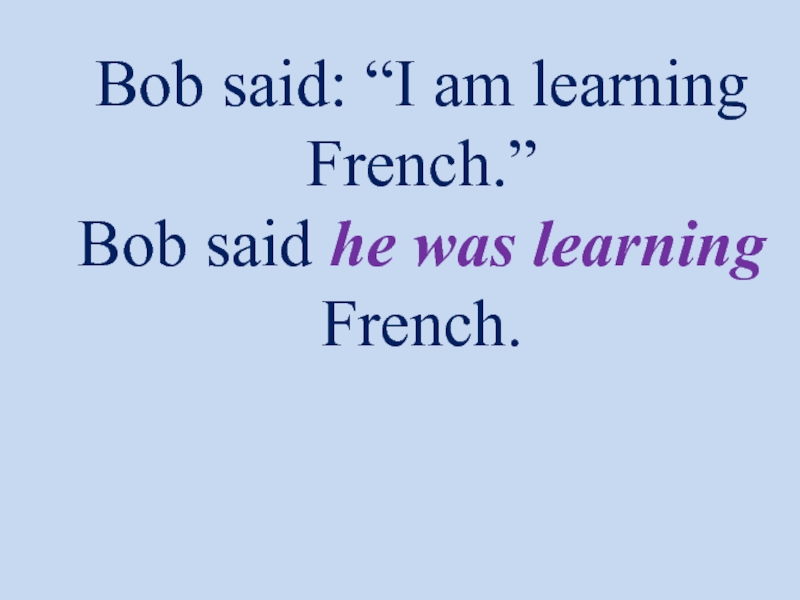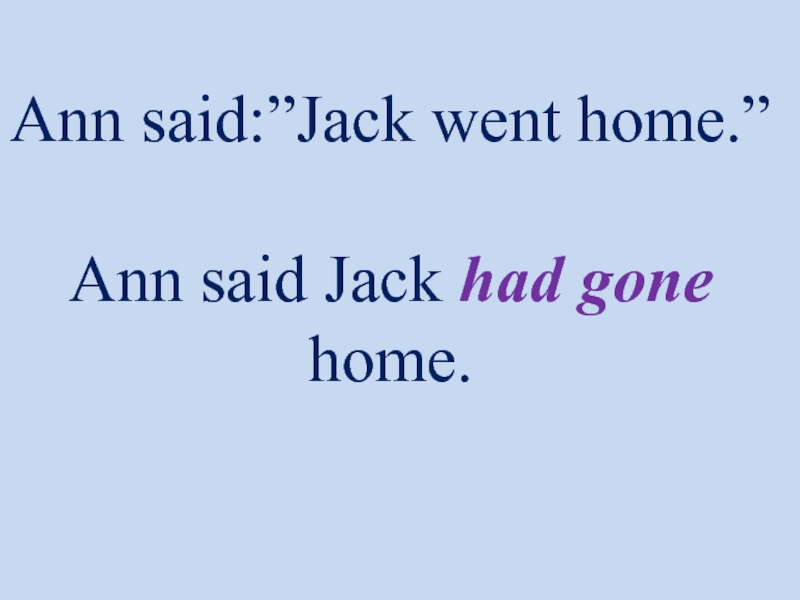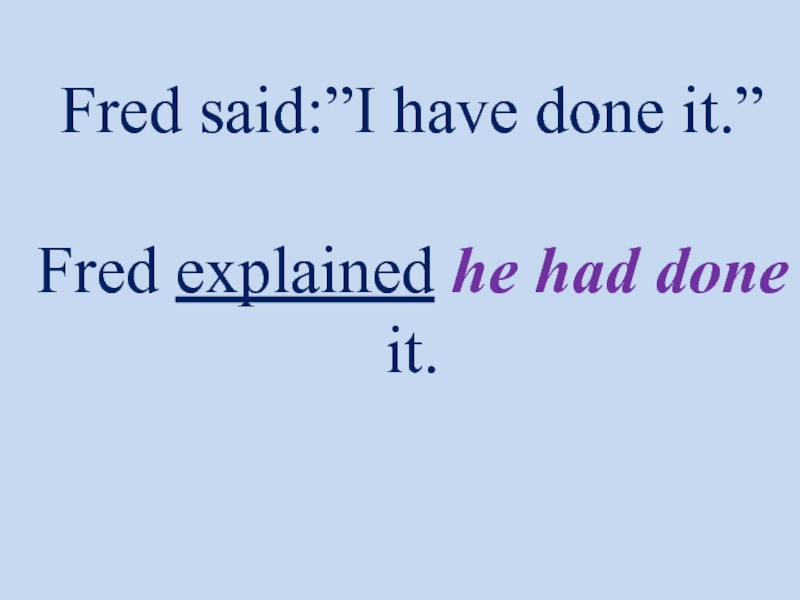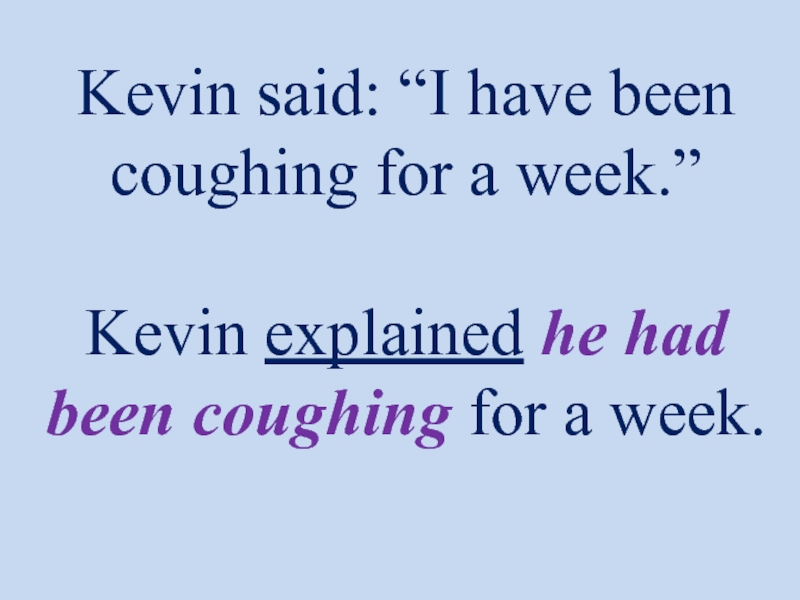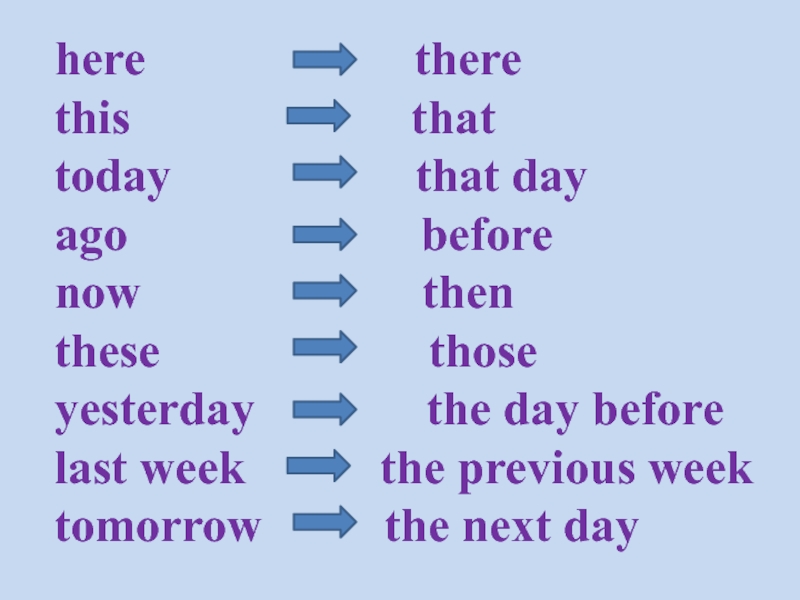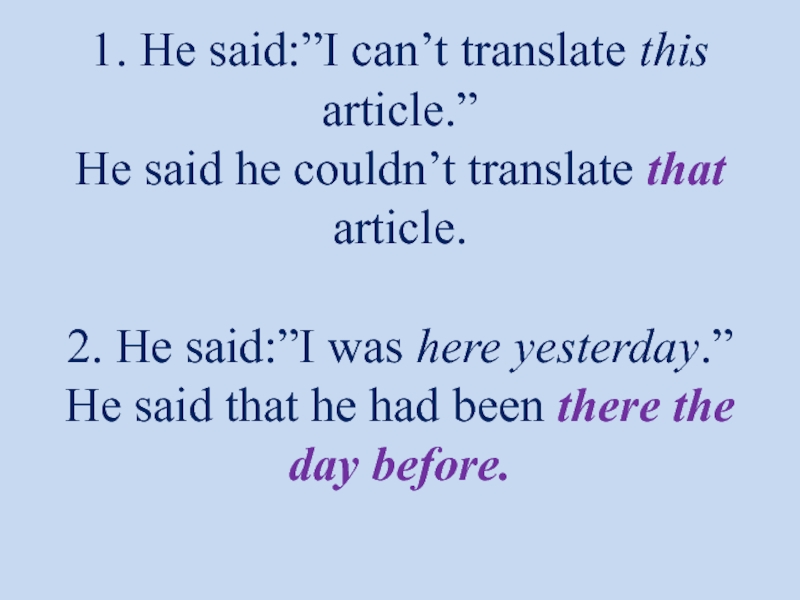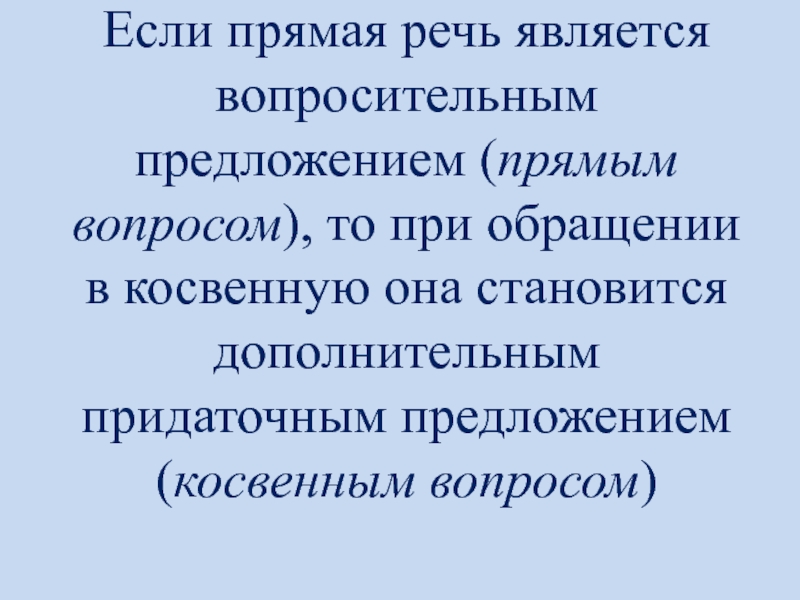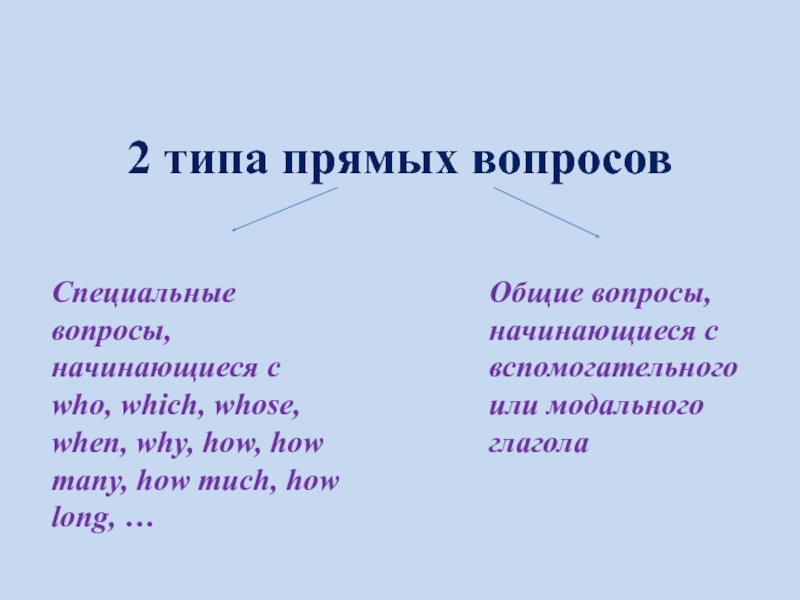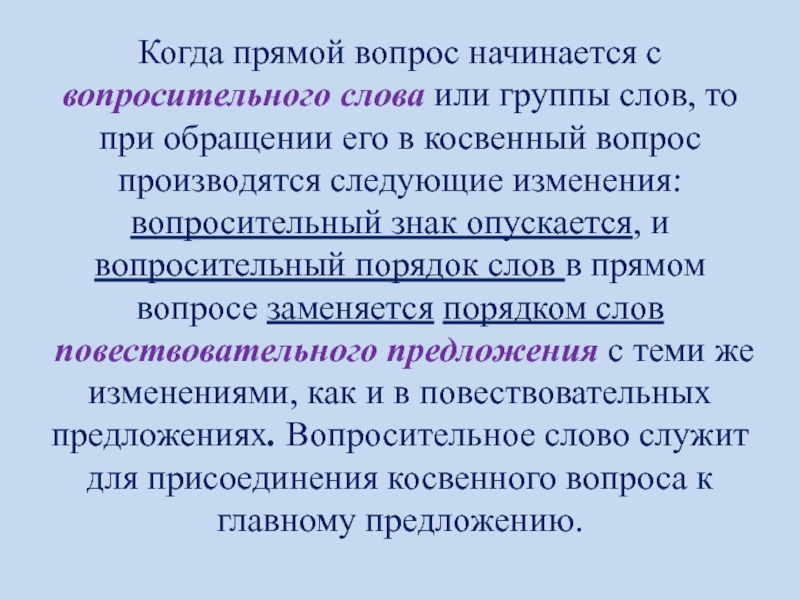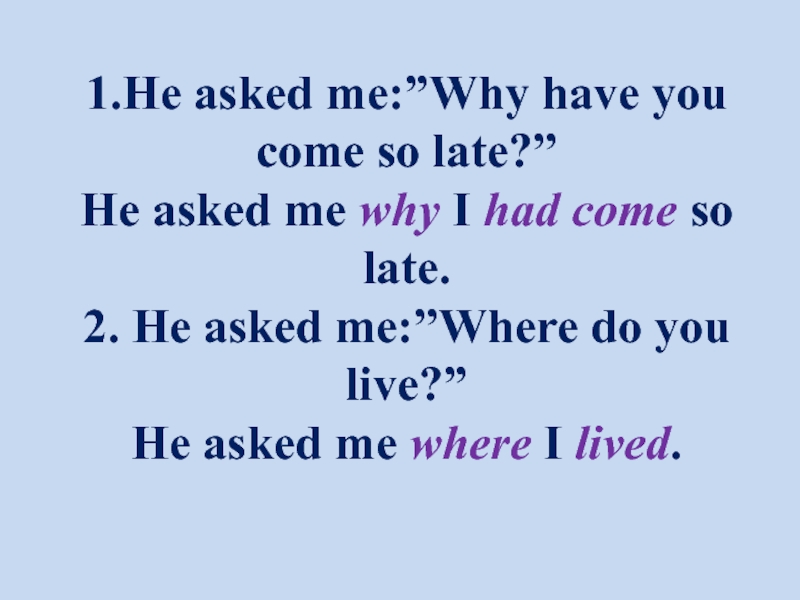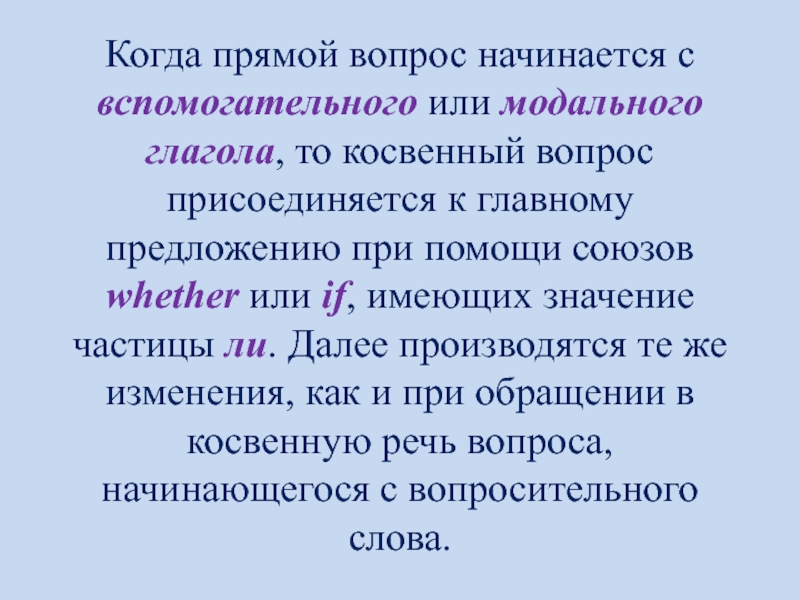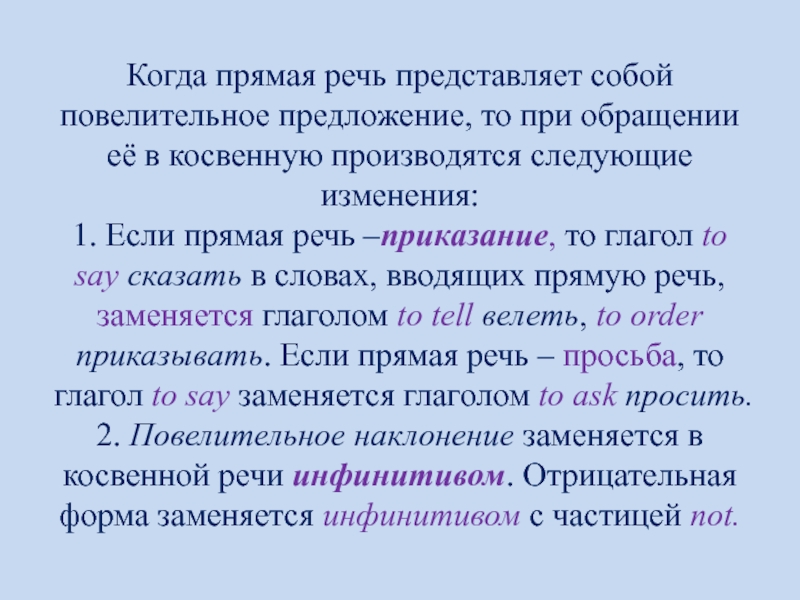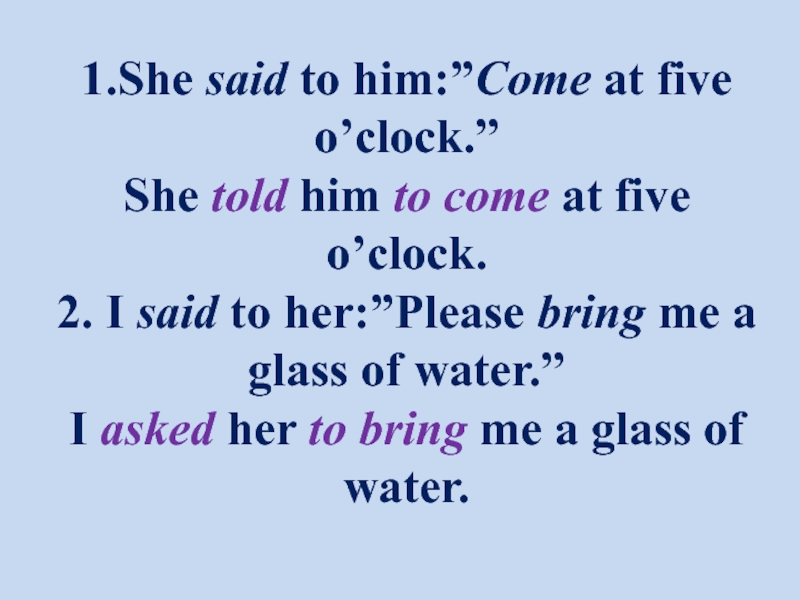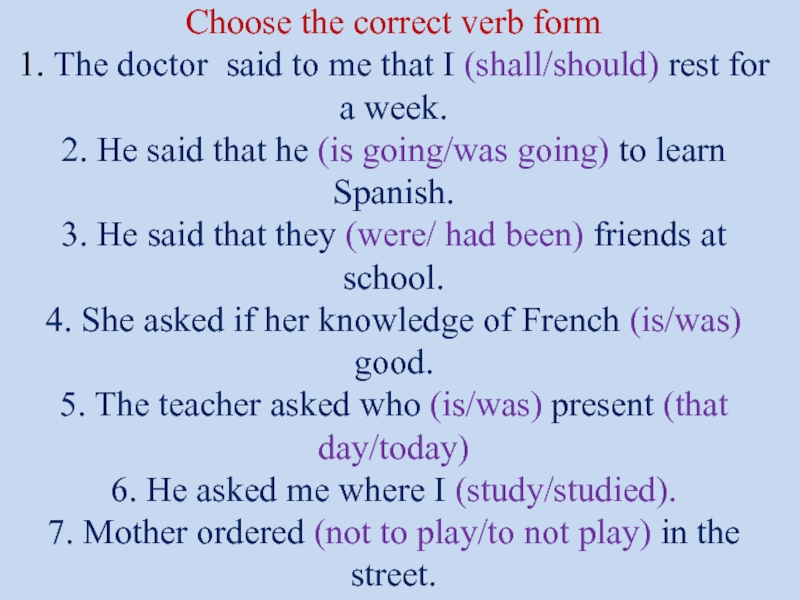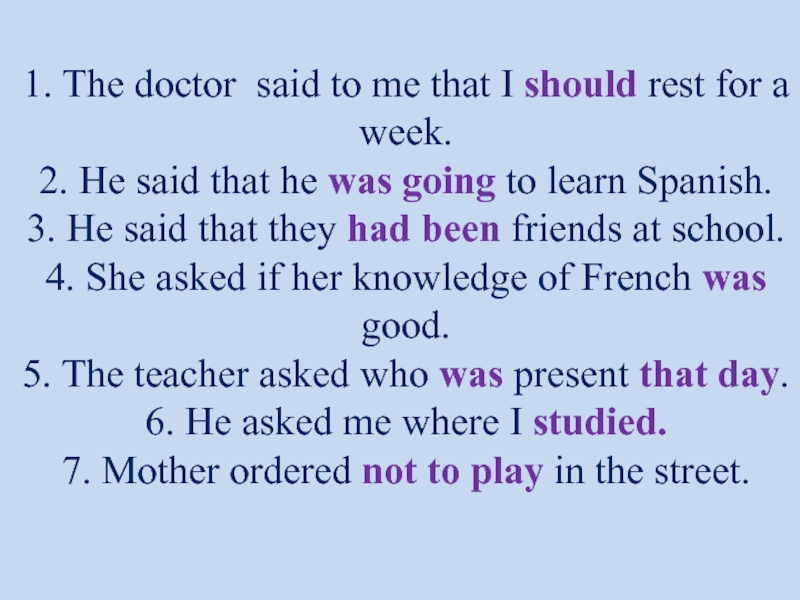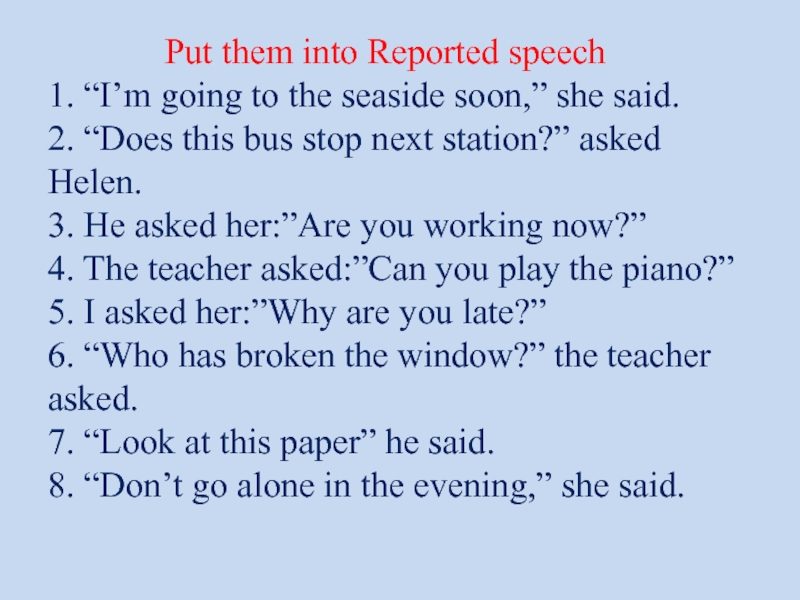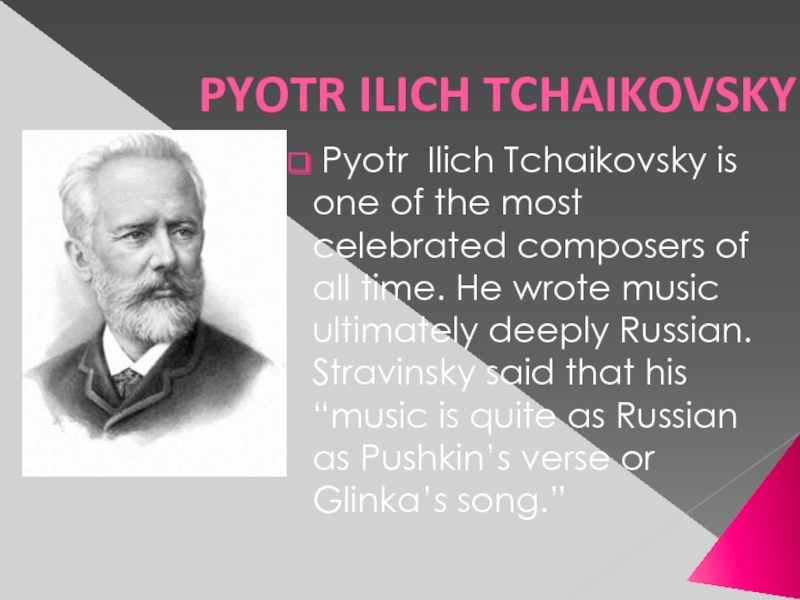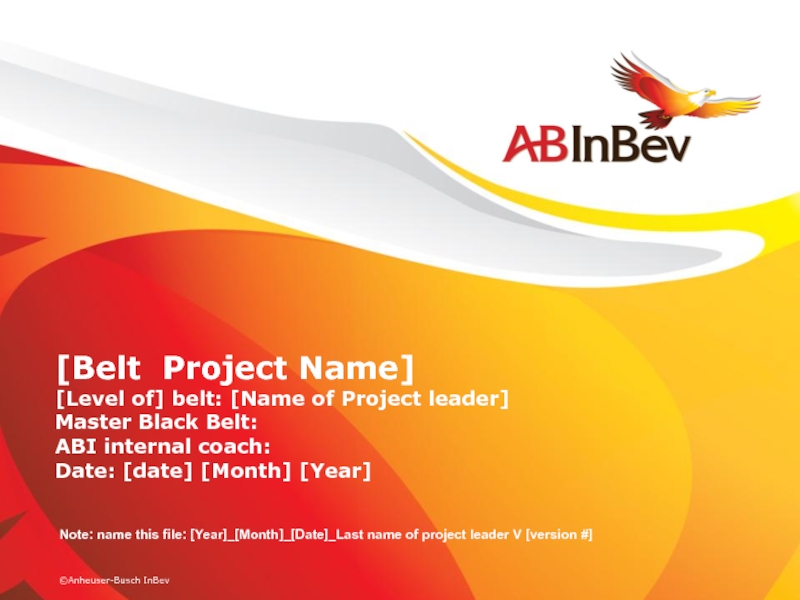- Главная
- Разное
- Дизайн
- Бизнес и предпринимательство
- Аналитика
- Образование
- Развлечения
- Красота и здоровье
- Финансы
- Государство
- Путешествия
- Спорт
- Недвижимость
- Армия
- Графика
- Культурология
- Еда и кулинария
- Лингвистика
- Английский язык
- Астрономия
- Алгебра
- Биология
- География
- Детские презентации
- Информатика
- История
- Литература
- Маркетинг
- Математика
- Медицина
- Менеджмент
- Музыка
- МХК
- Немецкий язык
- ОБЖ
- Обществознание
- Окружающий мир
- Педагогика
- Русский язык
- Технология
- Физика
- Философия
- Химия
- Шаблоны, картинки для презентаций
- Экология
- Экономика
- Юриспруденция
Косвенная речь презентация
Содержание
- 3. Речь какого-нибудь лица, передаваемая буквально так, как
- 4. Прямая речь может представлять собой:
- 5. Present Simple Past Simple
- 6. go/goes went am/is/are going was/were
- 7. John said: “I live in New York.”
- 8. Bob said: “I am learning French.” Bob said he was learning French.
- 9. Ann said:”Jack went home.” Ann said Jack had gone home.
- 10. Fred said:”I have done it.” Fred explained he had done it.
- 11. Kevin said: “I have been coughing for
- 12. We said: “We shall win the game.”
- 13. here
- 14. 1. He said:”I can’t translate this article.”
- 15. Если прямая речь является вопросительным предложением (прямым
- 16. 2 типа прямых вопросов Специальные вопросы,
- 17. Когда прямой вопрос начинается с вопросительного
- 18. 1.He asked me:”Why have you come so
- 19. Когда прямой вопрос начинается с вспомогательного или
- 20. 1. She asked:”Did John read the book?”
- 21. Когда прямая речь представляет собой повелительное предложение,
- 22. 1.She said to him:”Come at five o’clock.”
- 23. Choose the correct verb form 1.
- 24. 1. The doctor
- 26. 1. She said that she was going
Слайд 3Речь какого-нибудь лица, передаваемая буквально так, как она была произнесена, называется
Слайд 4
Прямая речь может представлять собой:
1.повествовательное предложение
2.вопросительное предложение
3.повелительное предложение
Слайд 5Present Simple
Past Simple
Present Progressive
Past Progressive
Past Simple
Past Perfect
Present Perfect
Past Perfect
Present Perfect
Past Perfect Progressive
Future Simple
Future-in-the-past
Слайд 6go/goes
went
am/is/are going
was/were going
went
had gone
have / has gone
had gone
have/has been going
had been
shall/will go
should/would go
Слайд 11Kevin said: “I have been coughing for a week.” Kevin explained he
Слайд 13here
Слайд 141. He said:”I can’t translate this article.” He said he couldn’t translate
Слайд 15Если прямая речь является вопросительным предложением (прямым вопросом), то при обращении
Слайд 162 типа прямых вопросов
Специальные вопросы, начинающиеся с
who, which, whose, when, why,
Общие вопросы, начинающиеся с вспомогательного или модального глагола

